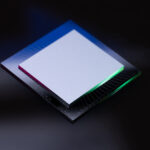Political tensions in the United States have brought to light a behavior known as “ideological poking.” This term refers to the public display of products that carry messages designed to offend political opponents. Recent research published in the Journal of Research in Personality has found a link between this behavior and one of the so-called Dark Triad personality traits: psychopathy.
Given the intense negative feelings and distrust between political groups in the United States, understanding why some individuals actively choose to display offensive political messages became a pertinent question. The researchers particularly focused on the Dark Triad traits — Machiavellianism, narcissism, and psychopathy — due to their known associations with aggressive and manipulative behaviors.
“Political polarization and the outgroup animosity it engenders are on the rise in the U.S. and abroad. Though individuals with darker personality traits have always existed, it’s important to understand whether and what role they play in contributing to current political tensions,” explained study author Matejas Mackin, a PhD student at the Kellogg School of Management at Northwestern University.
To examine ideological poking, the researchers conducted two studies. They recruited participants from Prolific, an online platform, to ensure a diverse sample of U.S. residents. In the first study, 299 participants were surveyed, with a balanced representation of political affiliations (45% identified as Democrats and 48% as Republicans), gender (76% female and 24% male), and ethnic backgrounds.
To measure the Dark Triad traits, the researchers used the Dark Triad Dirty Dozen scale. This 12-item scale captures individual differences in these traits through statements such as “I tend to manipulate others to get my way” for Machiavellianism, “I tend to want others to admire me” for narcissism, and “I tend to be unconcerned with the morality of my actions” for psychopathy.
For the ideological poking measure, participants viewed eight bumper stickers with messages insulting political opponents. They were asked to rate their willingness to display each sticker in public using a seven-point scale. The stimuli were adjusted based on the participant’s political orientation to ensure relevance; Republicans saw bumper stickers insulting Democrats and vice versa (e.g. “Trump 2020: Make Liberals Cry Again,” “Against All Enemies; Foreign and Republican.”)
In the second study, 200 participants were again recruited from Prolific, maintaining a balanced political affiliation and demographic diversity. This study aimed to replicate and extend the findings of the first study with several improvements. Instead of using the Dirty Dozen scale, the researchers used the P7 and M7 scales for psychopathy and Machiavellianism, respectively, addressing concerns that the previous measures conflated the two constructs.
Participants also rated different types of ideological poking products, such as t-shirts, hats, and buttons, and indicated their willingness to display these products in various contexts, including in front of political ingroup members, outgroup members, and in private.
The findings from both studies revealed a consistent pattern. In the first study, psychopathy was the only Dark Triad trait that significantly predicted the willingness to display offensive political bumper stickers. This suggests that individuals with higher levels of psychopathy are more likely to engage in ideological poking.
“Dark dispositions are associated with more offensive forms of political expression,” Mackin told PsyPost. “In other words, while there are certainly social and political factors that contribute to more polarized forms of expression, the dispositions people bring to the table are also relevant”
The second study confirmed and extended these findings. Psychopathy again emerged as the strongest predictor of ideological poking, regardless of the audience context. Machiavellianism showed a weaker but still positive association with the willingness to display offensive products, hinting at some involvement. Narcissism, however, remained unrelated to ideological poking across all contexts.
“We found that psychopathy predicted the public display of offensive political products around both ingroup and outgroup members, suggesting that individuals with darker personality traits may use such products both to derogate political opponents and to affirm their ingroup,” Mackin noted.
Despite the insightful findings, there are some caveats to consider. For instance, the sample was limited to U.S. residents, raising questions about whether these findings are applicable to other cultural contexts. Future research could explore whether these patterns hold in different countries with varying levels of political tension. Researchers might also investigate other factors that could interact with personality traits to influence ideological poking, such as media consumption or social network influences.
“The ultimate goal of my work is to understand why we are polarized and develop interventions to address political polarization and the outgroup animosity it engenders,” Mackin said. “To be sure, disagreeing with and disliking the other side is often reasonable, but at the extreme it can fray the fabric of democratic society. Thus, understanding the social and dispositional factors that contribute to polarization is increasingly relevant and necessary.”
The study, “The Dark Triad predicts public display of offensive political products,” was authored by Matejas Mackin and Neal J. Roese.





 Arabic
Arabic Chinese (Simplified)
Chinese (Simplified) English
English French
French German
German Italian
Italian Japanese
Japanese Russian
Russian Sinhala
Sinhala Spanish
Spanish Tamil
Tamil